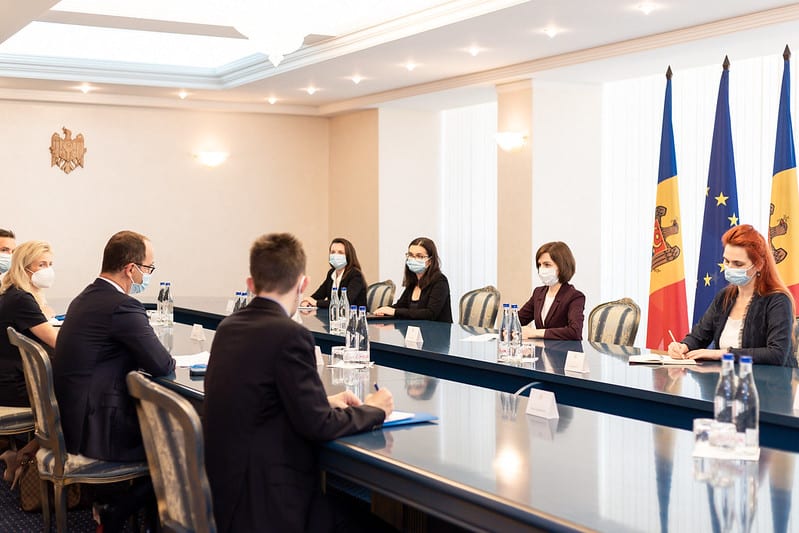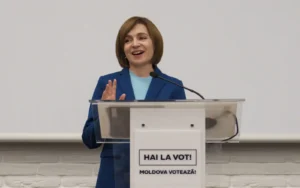Election results
As predicted, President Sandu’s Party of Action and Solidarity (PAS) a pro-EU party, has won the parliamentary elections of July 11th with a landslide victory of 52.45%. Based on the results from the central election commission, PAS would get 62 seats out of the 101 seats in parliament. This will allow the PAS to form a government with an absolute majority and allow Sandu to press ahead with her reform agenda. However, PAS will not be able to amend the constitution, for which a minimum of 71 of the 101 MP votes is needed. As the results came in, Sandu talked of building “a free country and a state that takes care of its citizens”. Sandu is a staunch supporter of Moldova’s integration with the EU, and her party also campaigned on an anti-corruption and reform platform.
After the counting of votes from 99.3% of polling stations, the PAS had 25 points more than its rival, the Bloc of Communists and Socialists, which was on 27.41%, meaning that they will get around 32 seats in parliament. The Sor Party, which is led by the fugitive businessman Ilan Shor will be the third party that will enter parliament with 5.79%, which results in 7 seats.
Fortunately, social democrats will not be represented in the Moldovan Parliament. the Democratic Party of Moldova (DPM), has lost all of its 10 seats in Parliament, meaning that they will not get into parliament. The DPM only manage to secure 1.82% of the votes that were cast. It seems like many Moldovans have not forgotten about the party’s history with fugitive oligarch Vlad Plahotniuc. Till now no statement about their huge loss has come out yet.
Role of the diaspora
According to analysts, the diaspora – which accounts for more than a third of Moldova’s eligible voters and widely backed Sandu during the presidential vote also supported her during the parliamentary elections. The diaspora cast more than 200,000 votes abroad compared to the record figure of 262,000 in the second round of the presidential election.
Irregularities
The AFP reported that dozens of people were standing in queues at special polling stations in eastern Moldova set up for residents of the separatist region. Moldovan police said that they had reported 242 “possible electoral violations”. Dodon, told journalists on July 11th that he would “decide whether to protest the election results” after all the violations were analysed.
Sources: Aljazeera | Reuters | Euronews | Intellnews
Photo: Flickr



